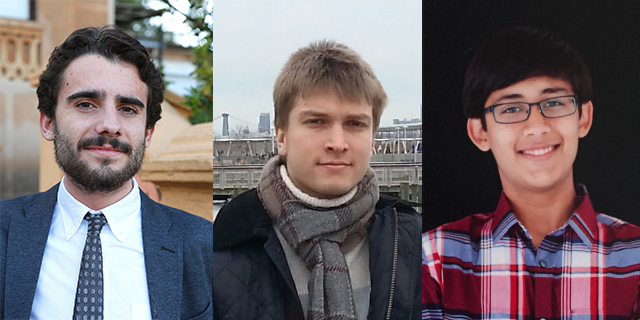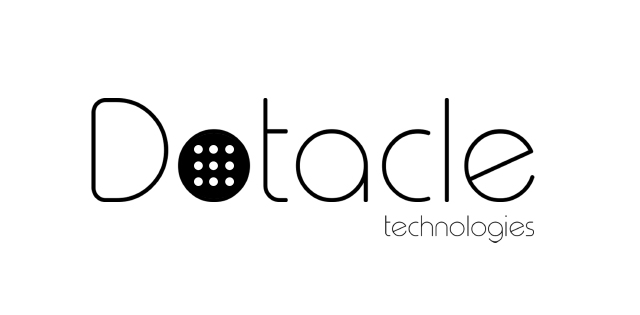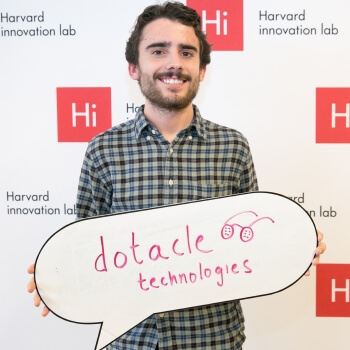News
Dotacle co-founder Jose Maria Amich, A.B. '18, was inspired to launch the startup after a routine visit to the ophthalmologist. (Photo provided by Jose Maria Amich.)
A routine trip to the ophthalmologist inspired three Harvard students to launch a startup focused on bringing clearer vision to the world’s most underprivileged people.
During a visual acuity test, Jose Maria Amich, A.B. ’18, was surprised by how much his vision improved as he peered through the tiny holes dotting a pair of pinhole lenses. Amich, a molecular and cellular biology concentrator, wondered if this cheap, simple technology could help people in developing countries.
Pinhole glasses are commonly used to measure refractive error in patients’ eyes. Refractive error, including conditions such as astigmatism and myopia, is caused by a defect in the shape of the lens on a person’s eye. The pinhole lenses help focus light that hits the eye, causing it to strike closer to the retina, which improves vision clarity. Uncorrected refractive error affects more than 600 million people in the developing world.
Amich and his roommates, Grigory Khimulya, A.B. ’18, a molecular and cellular biology concentrator with a secondary in computer science, and Kamran Jamil, A.B. ’18, a social studies concentrator with a secondary global health, searched for organizations that were distributing pinhole lenses to improve people’s vision in under-resourced areas. Their searches came up empty, so they launched Dotacle Technologies to tackle the problem themselves.

(From left) Doctacle co-founders Jose Maria Amich, A.B. ’18, Grigory Khimulya, A.B. ’18, and Kamran Jamil, A.B. ’18. (Photos provided by Jose Amich, Grigory Khimulya, and Kamran Jamil.)
Working in the Harvard Innovation Lab, the team began brainstorming designs for pinhole lenses made from paper. While serving as an undergraduate research assistant in the lab of George Whitesides, Woodford L. and Ann A. Flowers University Professor of Chemistry and Chemical Biology, Jamil had seen how reinforced paper could produce a seemingly endless array of durable, low cost products.
With the help of the staff in the Active Learning Labs at the John A. Paulson School of Engineering and Applied Sciences (SEAS), the students developed reinforced paper prototypes, drawing on a $500 Nectar grant to cover the costs. The Nectar program, established at SEAS in 2012, supports extracurricular projects in engineering and applied sciences.
Working closely with project advisor Rob Howe, Abbott and James Lawrence Professor of Engineering at SEAS, the students spent the spring ideating and developing their initial prototype. Howe’s assistance was invaluable, Khimulya said, since he and his co-founders had little engineering design experience.
The biggest challenges the team faced, aside from learning to use the laser cutter and other lab equipment, was the lack of scientific literature on pinhole lenses and their potential use in developing countries.
“We have this idea, but now we have to polish it and make it work,” Amich said. “In addition to refining the technology, we still need to figure out what the barriers are to this product being used in developing countries.”
So the students reached out to physicians Thomas Burke, chief of the Division of Global Health and Human Rights at Massachusetts General Hospital (MGH), and Roberto Pineda II, associate director of the Office of Global Surgery and Health at the Massachusetts Eye and Ear Infirmary, who have experience providing medical care in developing countries. Later this summer, they will travel with Burke to an MGH-affiliated hospital in Kenya on a fact-finding mission. They are also planning a trip to Uganda to conduct a clinical trial of different styles of pinhole glasses.
“I’m looking forward to traveling to Africa, living with the people, and seeing how this technology can effectively enter the market, from their points of view,” Jamil said. “One of the most valuable lessons we’ve learned from working at SEAS is the power of observation.”
Armed with firsthand information, the students plan to further refine the prototype this fall. The next few months will be critical for Dotacle, Jamil said, as the co-founders solidify their aspirations and plan to scale up for future growth.
With streamlined production, they could eventually produce glasses for less than 50 cents a pair. Thinking long-term, Khimulya said they hope to initially begin distributing glasses through relief organizations and service groups traveling to Africa, reaching as many under-resourced areas as possible.
“I can’t imagine how detrimental it can be if you don’t have access to prescription glasses, which we often take for granted in the U.S.,” Khimulya said. “Clear vision is so important for improving educational outcomes, which help alleviate poverty and improve lives. The most rewarding part of this project is the chance to help so many people.”

Topics: Entrepreneurship, Awards
Cutting-edge science delivered direct to your inbox.
Join the Harvard SEAS mailing list.
Press Contact
Adam Zewe | 617-496-5878 | azewe@seas.harvard.edu



